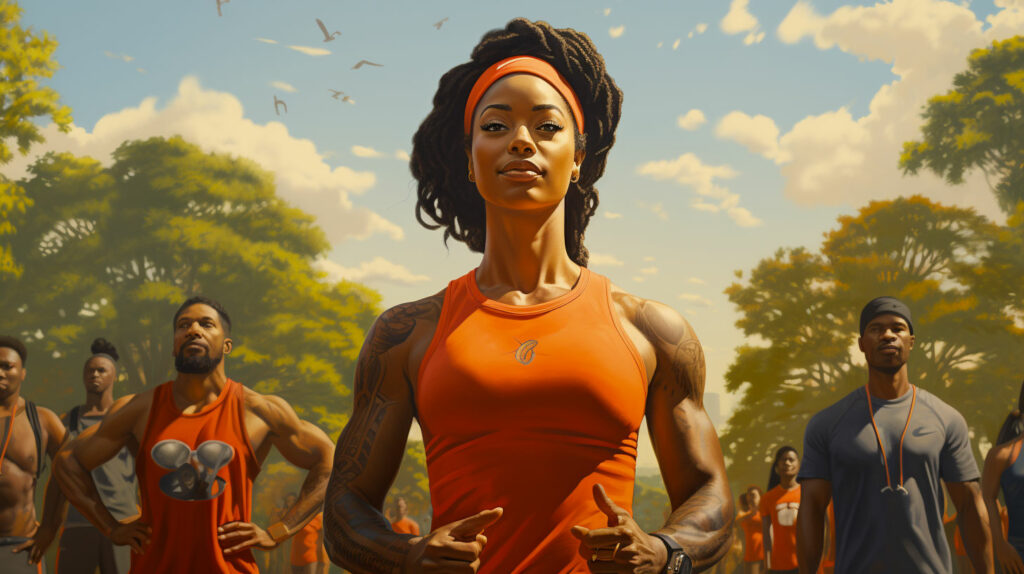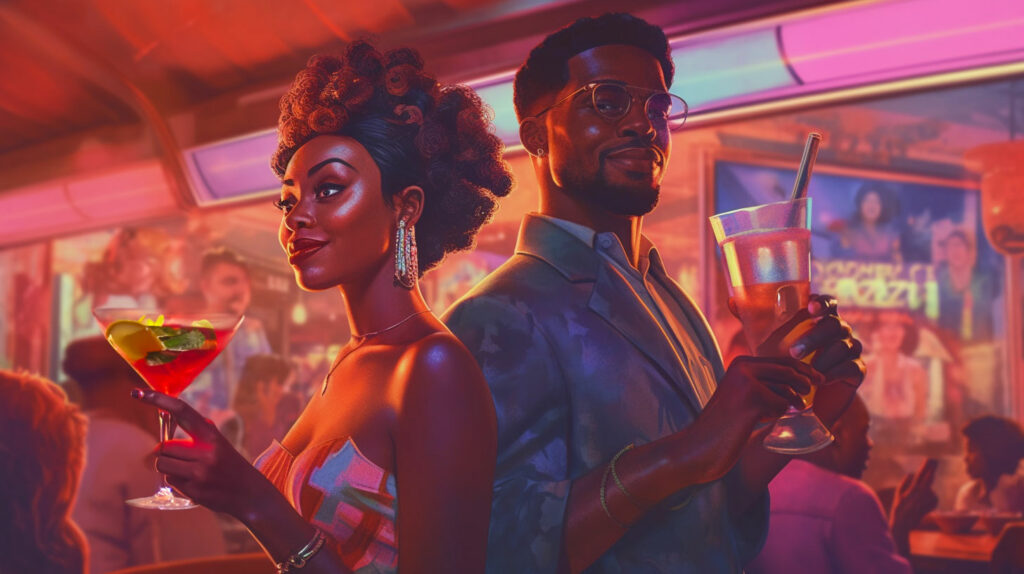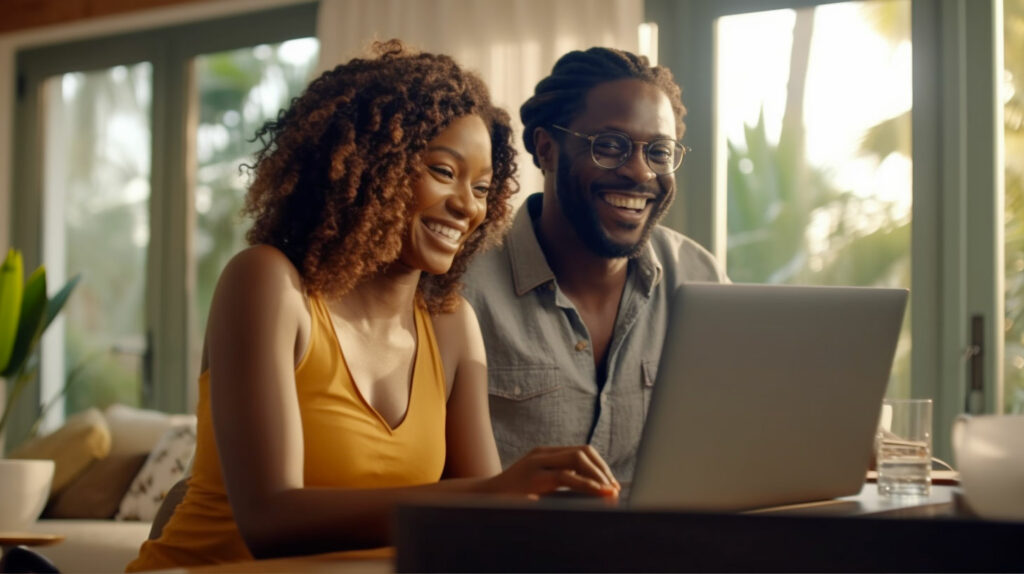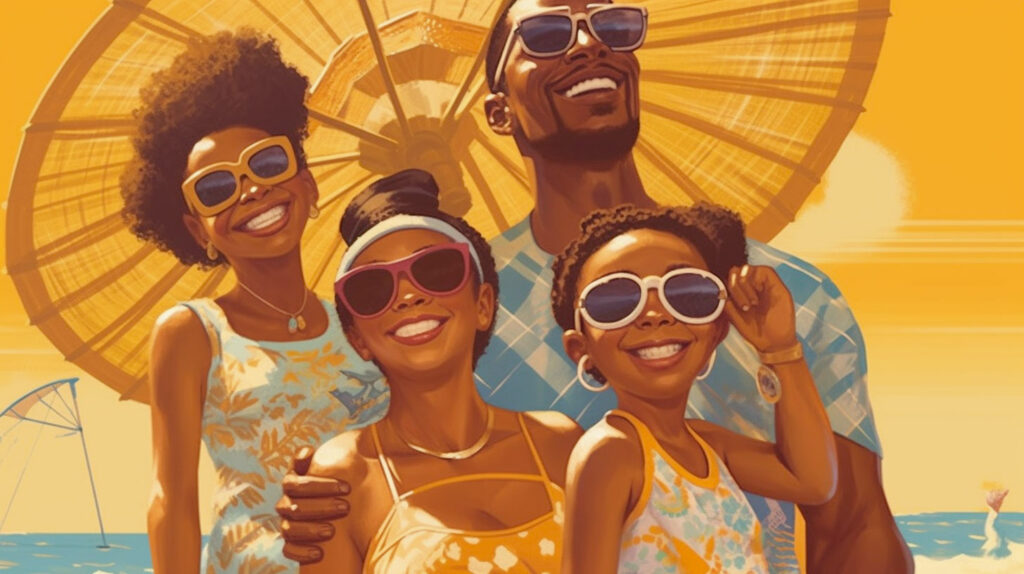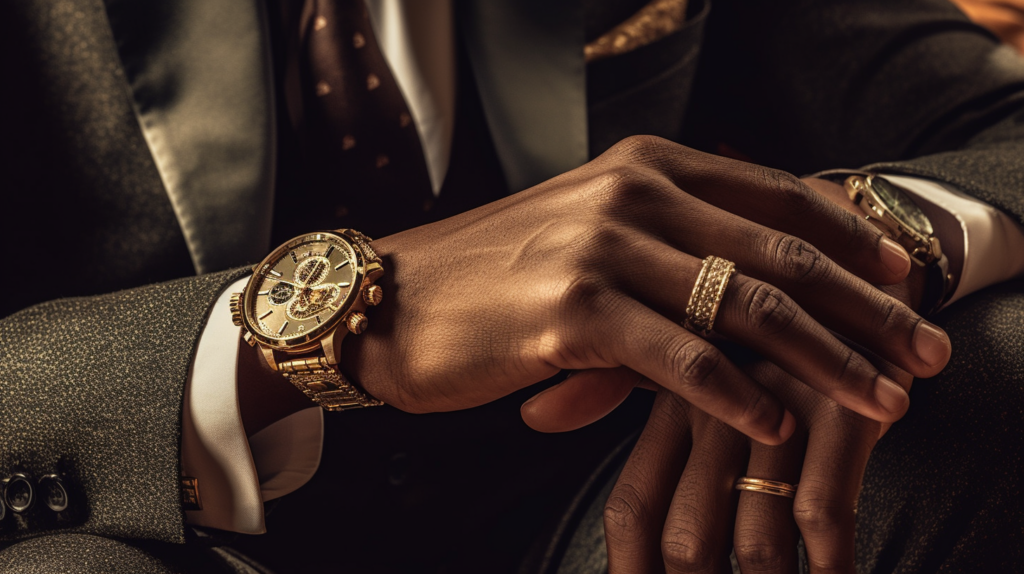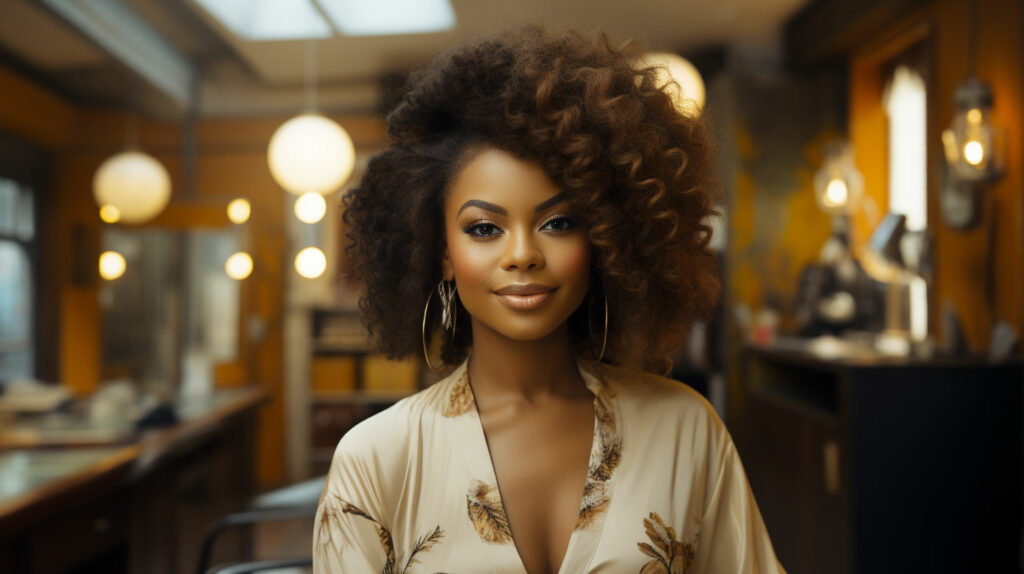In the dynamic world of fashion, black owned clothing brands offer innovative alternatives to mainstream options like Lululemon. These labels are not just about style; they represent a movement towards diversity and ethical consumerism.
With an array of designs that challenge the status quo, these brands deliver quality apparel while fostering cultural pride and economic empowerment within the black community. Whether you’re searching for activewear that stands out or casual pieces with a message, there’s a wealth of options waiting to be discovered.
Key Takeaways
- Discover the burgeoning world of black-owned athleisure brands that offer stylish, inclusive, and culturally rich alternatives to mainstream options like Lululemon.
- Celebrate the achievements and unique stories of black entrepreneurs who are making significant strides in the activewear industry, providing inspiration and motivation for others.
- Understand the importance of empowering black business owners within the fitness sector, as it fosters diversity, innovation, and economic growth within the community.
- Recognize influential figures in black fitness communities who are not just brand ambassadors but also role models advocating for health, representation, and social change.
- Consider how black-owned brands are uniquely addressing mental and physical health needs through culturally sensitive designs and community-focused initiatives.
- Learn about the intersection of black veganism and activewear, which highlights the impact of lifestyle choices on wellness and the demand for sustainable fashion.
- Explore avenues for investing in black-owned fitness apparel to support economic empowerment and contribute to a more diverse marketplace.
Top Black Owned Activewear Brands
- EleVen by Venus Williams: A fashion-forward activewear brand designed by tennis champion Venus Williams.
Website: elevenbyvenuswilliams.com
Instagram: @elevenbyvenus - CultureFit Clothing: CultureFit Clothing offers activewear that celebrates the vibrant West African culture.
Website: culturefitclothing.com
Instagram: @culturefitclothing - Full Court: Full Court, founded by Marguerite Wade, is a luxury sportswear brand that combines style and functionality.
Website: fullcourtsport.com
Instagram: @fullcourtsport - Diva Kurves: Known for creating high-quality plus size activewear.
Website: thedivakurvescollection.com
Instagram: @thedivakurvescollection - Pru Apparel: Pru Apparel, a brand created by Nzinga Young, offers unique and colorful activewear for women of all sizes.
Website: pruapparel.com
Instagram: @pruapparel - Kemetic Knowledge: Kemetic Knowledge, founded by Nisha and Mike Reed, offers activewear inspired by African culture and history.
Website: gvoswim.com
Instagram: @kemeticknowledge - Sankofa Athletics: Founded by Folusho Otuyelu, Sankofa Athletics offers sportswear that encourages self-love and empowerment.
Website: sankofaathletics.com
Instagram: @sankofaathletics - Rugged Black: Rugged Black’s mission is to comfort and inspire young black men – both in the clothes they wear and the pursuit of their dreams.
Website: ruggedblack.com
Instagram: @ruggedblack_rblk - Queen Malkia: Queen Malkia, founded by Malkia Newman, offers a range of stylish and affordable activewear for women.
Website: www.queenmalkia.com
Exploring the Rise of Black-Owned Athleisure Brands
Growth Evolution
Black-owned athleisure brands have seen significant growth recently. These brands offer a range of products, from sports bras to leggings. They stand out with unique designs and cultural significance. This growth reflects a broader demand for diversity in fashion.
Customers today want more than just comfort and style. They seek representation and inclusivity in their clothing choices. Black entrepreneurs are stepping up to meet this need. Their designs often draw inspiration from African culture, offering something new and different.
Contributing Factors
Several factors contribute to the rise of black-owned athleisure brands. Social media plays a big role in promoting these businesses. Influencers wearing these brands can reach millions instantly.
There’s also an increased awareness about supporting black businesses. Many consumers make deliberate choices to buy from these brands as a form of empowerment.
- Better representation in marketing.
- A focus on community engagement.
- High-quality materials that rival traditional fitness apparel giants like Lululemon.
These elements combine to create strong customer loyalty for black-owned athleisure lines.
Industry Impact
The success of black-owned athleisure has impacted the wider fitness apparel industry. It pushes bigger companies to consider diversity more seriously in their product lines and advertising strategies.
Smaller, nimble startups can quickly adapt to trends and consumer feedback, setting new standards for innovation within the industry:
- Introducing fresh styles at a faster pace.
- Prioritizing ethical production methods which resonate with socially conscious buyers.
- Creating space for more voices within an industry historically dominated by major players.
This shift is not just good business; it’s changing how we think about who makes our clothes—and why that matters.
Celebrating Success Stories in Black-Owned Activewear
Brand Triumphs
Black-owned activewear brands are making waves. They offer unique bodysuits, vibrant prints, and quality pieces that stand up to sweat. These businesses thrive by understanding their customers’ desire for both style and function.
One such success story is a brand that launched an innovative line of workout wear specifically designed for women. Their clothing combines performance with fashion-forward design, featuring bold prints that celebrate cultural heritage. This approach not only filled a gap in the market but also resonated with consumers looking for more than just functionality from their fitness attire.
Strategic Wins
The strategies behind these brands are as diverse as their designs. Some focus on limited-edition collections to create buzz and exclusivity around their products. Others leverage social media influencers who align with their brand values to reach wider audiences.
For example, one company used pop-up shops in trendy urban areas, attracting attention through live events and community engagement activities. This strategy helped them build a loyal customer base while showcasing the vibrancy of black culture within the activewear space.
Inspiring Entrepreneurs
These brands do more than sell clothes; they inspire future entrepreneurs. By successfully navigating an industry dominated by big names like Lululemon, they prove there’s room at the table for diversity and innovation.
They serve as role models showing aspiring black business owners what’s possible with hard work and creativity. Their stories often include overcoming challenges related to funding or market entry barriers – providing valuable lessons to those following in their footsteps.
Empowering Black Entrepreneurs in the Fitness Industry
Support Networks
Support networks play a crucial role for black entrepreneurs. They provide guidance, share knowledge, and offer emotional backing. Mentorship programs specifically can be pivotal. Experienced business leaders help newcomers navigate challenges. For example, a mentor might assist with strategies to market black owned clothing brands effectively.
Networking groups within the fitness industry also foster collaboration among black entrepreneurs. These alliances often lead to shared resources and joint ventures that benefit all involved.
Overcoming Barriers
Black entrepreneurs face significant obstacles when entering markets like activewear dominated by giants such as Lululemon. Issues range from limited access to capital to systemic biases that undervalue black-led businesses. Education on these matters is key for both consumers and other businesses.
To combat these issues, black-owned brands often emphasize their unique cultural perspective in their products and marketing efforts, celebrating black culture through design while offering high-quality alternatives for workouts and exercise apparel.
Success Strategies
Successful black-owned fitness brands often employ specific strategies:
- Emphasizing community engagement.
- Highlighting the importance of representation.
- Leveraging social media platforms effectively.
These tactics not only boost sales but also strengthen ties with customers who value supporting minority-owned businesses.
Another strategy includes focusing on niche markets within the broader fitness sector where they can offer specialized products or services that resonate with specific groups’ needs or interests related to body positivity or culturally relevant designs.
Spotlight on Influential Figures in Black Fitness Communities
Driving Visibility
Influential figures play a pivotal role in promoting black-owned fitness brands. They are often seen wearing these brands, which helps to increase visibility and popularity. Athletes and public personalities use their platforms to highlight the importance of supporting black entrepreneurs.
These individuals do not just wear the clothes; they embody the brand’s values. Their choice to support black-owned businesses is deliberate and impactful. It sends a message that resonates with many people looking for alternatives to mainstream options like Lululemon.
Community Engagement
The power of influential personalities extends beyond marketing. They inspire community engagement by leading fitness movements and events sponsored by these brands. This creates a sense of belonging among consumers who share similar values.
Their involvement goes beyond simple endorsements; it fosters participation in wellness activities that benefit both individual health and community cohesion. By choosing to represent black owned clothing brands instead of Lululemon, they encourage others to do the same.
Inspiring Participation
People look up to athletes and influencers within their communities for guidance on how to lead healthier lifestyles. When these leaders choose black-owned fitness apparel, it motivates others to explore these alternatives as well.
This inspiration can turn into active participation as community members become more aware of diverse brand choices available in the market.
- These actions help build stronger connections within communities.
- They also create opportunities for new business ventures within the industry.
Addressing Mental and Physical Health in Black-Owned Brands
Fitness Apparel
Fitness apparel is more than just clothing. It’s a tool that can inspire confidence and motivate individuals to stay active. When people wear clothes they feel good in, they are more likely to engage in physical activity, which boosts their mental health.
Black-owned clothing brands recognize this connection between attire and wellness. They design products that make customers feel empowered during workouts. These garments often feature affirming messages or cultural designs that resonate with the wearer’s identity.
Wellness Messaging
For black-owned brands, it’s not only about creating quality fitness wear but also about embedding wellness messaging into their brand ethos. This strategy helps foster a community around the brand that values both mental health and physical fitness.
These companies use social media platforms to share inspiring stories of perseverance and success within the black community. By doing so, they highlight how integral mental fortitude is for achieving one’s fitness goals.
Community Impact
The influence of these brands extends beyond individual well-being; it impacts communities as well. Black-owned businesses often reinvest in local areas, supporting events like neighborhood runs or wellness workshops.
Their presence amplifies the importance of access to health resources within predominantly black neighborhoods where such amenities may be scarce.
The Impact of Black Veganism on Wellness and Activewear
Consumer Choices
Black veganism is more than a diet. It’s a lifestyle choice that reflects in clothing too. When blacks choose vegan, they often seek activewear aligning with their values. This means no animal products.
Many black-owned brands recognize this shift. They offer clothes made without harming animals. For example, some use organic cotton or recycled materials instead of leather or wool.
Material Innovation
Vegan-friendly materials are key in sustainable activewear from black-owned brands. These materials include bamboo, hemp, and recycled polyester. They are kind to the planet and great for workout gear.
Brands using these fabrics show innovation and responsibility. Customers get durable, breathable clothing good for exercise and the earth.
Design Philosophy
The design process for black-owned vegan activewear focuses on ethics. Designers consider how each piece impacts health, wellness, and the environment. They aim to create functional yet fashionable items that tell a story of empowerment.
This approach leads to unique collections that stand out in the fitness world. It shows how deeply personal beliefs can shape an entire brand identity.
Navigating Investment in Black-Owned Fitness Apparel
Investment Opportunities
Investing in black-owned fitness apparel brands opens doors to unique markets. These brands often cater to diverse body types and sizes, offering options like sports bras, leggings, and bike shorts. They resonate with consumers looking for inclusive sizing and designs that embrace all forms of beauty.
Potential investors should look for companies with a strong community presence. Brands such as Rugged Black prioritize their connection with customers, creating loyalty beyond the product itself. This can lead to sustained growth and a solid customer base.
Risks and Rewards
Every investment carries risks alongside possible rewards. In the fitness apparel sector, trends change quickly. Investors must stay informed about fashion shifts and consumer demands.
However, investing in black-owned businesses can yield significant rewards. There’s a growing demand for more representation within industries including clothing lines that celebrate diversity in size and shape.
Investment Tips
For those considering an investment, here are some tips:
- Research thoroughly before committing funds.
- Understand the brand’s mission and core values.
- Evaluate their market presence against competitors like lululemon.
It’s crucial to assess how well these brands accommodate different body types using features like four-way stretch fabric or varied sizing options.
Where to Find and Support Black-Owned Activewear Brands
Shopping Platforms
Finding black-owned activewear brands can be a rewarding journey. Online marketplaces are a great starting point. Websites like WeBuyBlack and Etsy offer sections dedicated to black entrepreneurs, including those selling fitness apparel. You’ll find a variety of styles ranging from yoga pants to running shorts that rival mainstream options.
Many of these brands also sell directly through their websites. By purchasing straight from the source, you ensure more profit goes into the hands of the creators themselves.
Local Boutiques
Don’t overlook local boutiques in your search for unique activewear by black designers. These small shops often support local artisans and businesses, providing them with an invaluable platform for exposure and sales. Visiting these stores not only helps you discover new fashion but also strengthens community ties.
Check social media or community boards for announcements on pop-up shops featuring local black-owned brands as well.
Brand Advocacy
Supporting these businesses extends beyond buying their products. Social media is a powerful tool for brand advocacy; sharing your favorite pieces online can significantly boost visibility for these companies.
Writing reviews or engaging with the brand’s content amplifies their message further, helping build credibility and attract new customers who value quality recommendations.
Community Involvement
Being involved in your community offers another avenue to uplift black-owned activewear brands. Attend local events or fitness expos where these entrepreneurs might showcase their work. Networking at such gatherings can lead to partnerships that benefit both consumers seeking quality gear and businesses looking for loyal patrons.
Consider volunteering time or resources towards events promoting diversity within the activewear industry as well.
The importance of consumer support cannot be understatedEspecially in competitive markets like clothing retail:
- It drives demand which leads to increased production
- Helps maintain employment within communities
- Encourages entrepreneurship among underrepresented groups
- Fosters innovation by supporting unique designs not found elsewhere
Summary
The exploration of black-owned clothing brands in the athleisure space highlights a dynamic shift towards inclusivity and empowerment. These brands are not only reshaping the narrative around fitness and wellness but also fostering community, celebrating success stories, and promoting mental and physical health. The rise of such enterprises underlines the importance of supporting diversity in the industry, where black entrepreneurs can thrive and influence fitness communities positively.
As consumers become more conscious of their purchasing power’s impact, choosing black-owned activewear represents a meaningful step toward economic equity and cultural acknowledgment. Let this article serve as a starting point to discover and champion these innovative brands. Take action by investing in their growth—seek out these trailblazers, share their stories, and wear their creations with pride. Together, we can create a more inclusive future in fashion and beyond.
Frequently Asked Questions
What are some black-owned alternatives to Lululemon for athleisure wear?
Several black-owned brands offer quality athleisure similar to Lululemon, including EleVen by Venus Williams, CultureFit, which emphasizes community engagement alongside its sportswear line.
How can I support black entrepreneurs in the fitness industry?
Supporting black entrepreneurs can be done by purchasing from their activewear brands, sharing their success stories on social media, and investing in their businesses if opportunities arise.
Who are some influential figures in the black fitness community?
The black fitness community is home to many influential figures who often collaborate with or own activewear brands. They inspire through advocacy for health and wellness within the community.
Why is mental and physical health important for black-owned clothing brands?
Black-owned clothing brands frequently address mental and physical health to promote overall well-being and cater specifically to the needs of their communities through thoughtful design and messaging.
Can you recommend any eco-friendly, vegan options among black-owned activewear companies?
Yes, there has been a notable impact of Black veganism on wellness; look for brands that highlight sustainable practices and use plant-based materials in their products.
Where can I find a list of black-owned activewear companies to shop from?
There are online directories dedicated to listing black-owned businesses where consumers can discover various activewear companies committed to supporting these enterprises.
